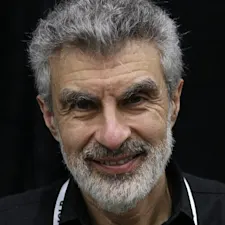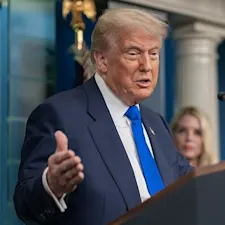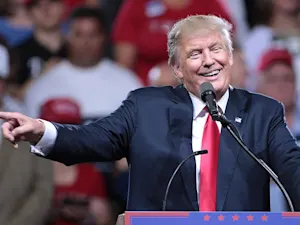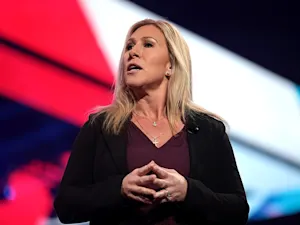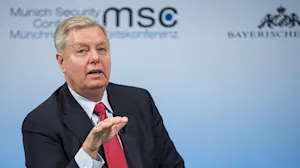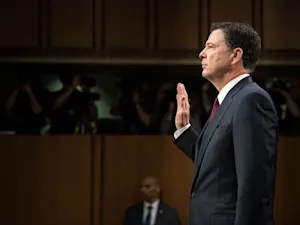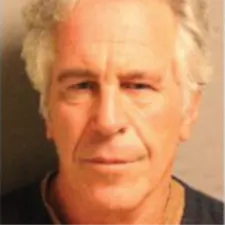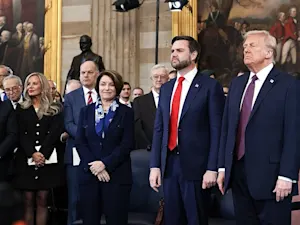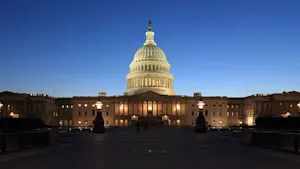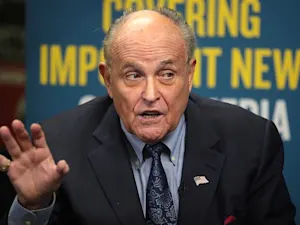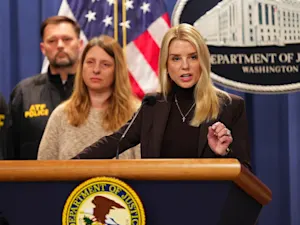
Trump Proposes Using US Cities as Military Training Grounds
Donald Trump speaking at CPAC 2011 in Washington, D.C.. Photo courtesy of Gage Skidmore under CC BY-SA 2.0.
Recently, on a brisk day at Marine Corps Base Quantico, President Donald Trump delivered a speech that sent ripples through the military and political worlds alike. Addressing hundreds of senior US military leaders, Trump reportedly proposed a bold and controversial idea: using "some of these dangerous cities as training grounds for our military." According to The Hill, President Trump framed this proposal as a response to what he described as an "invasion from within," linking it to plans for increased domestic military deployments in cities like Chicago, Portland, and Washington, D.C.
'Training Grounds' for a Domestic War
Trump's speech was delivered to an audience of top generals and admirals, where he emphasized that defending the homeland was the military's "most important priority," as reported by The Hill. He singled out Democratic-led cities such as Chicago and New York City as places where federal intervention might be necessary. "We should use some of these dangerous cities as training grounds for our military," Trump said, underscoring the seriousness with which he views the situation.
The president described the situation as a "war from within," comparing the threat to a foreign enemy but more difficult because "they don't wear uniforms," as reported by The Hill. He specifically mentioned Chicago as a "big city with an incompetent governor" and said federal forces would be "going into Chicago very soon."
Trump's remarks came amid ongoing deployments of National Guard troops to cities like Washington, D.C., and Memphis, Tennessee, as part of efforts to quell crime. Portland, Oregon, is also bracing for a similar deployment, despite pushback from local officials and community leaders who dispute the characterization of their cities as "war zones."
Legal and Military Experts Sound the Alarm
The proposal to use US cities as military training grounds has raised immediate concerns about constitutional and legal boundaries. The Posse Comitatus Act, a nearly 150-year-old federal law, restricts the military's role in domestic law enforcement. While National Guard members are generally exempt when under state control, the law applies when they are "federalized" and placed under the president's command, as has happened in Los Angeles and other cities, as reported by the Associated Press.
Retired military officials have expressed unease about the implications of Trump's plan. Retired Maj. Gen. Randy Manner warned that such deployments risk alienating the military from the American public, saying, "It will no longer be that our military is part of us. It'll be, 'It's those guys in uniform, those armed thugs,'" as reported by the Military Times.
Senator Jack Reed, the top Democrat on the Senate Armed Services Committee, called the meeting at Quantico "an expensive, dangerous dereliction of leadership," as reported by the Associated Press. He criticized Defense Secretary Pete Hegseth's ultimatum to military officers to conform to his political worldview or resign, labeling it "profoundly dangerous."
Oregon officials have taken legal action against the deployment of National Guard troops, filing a lawsuit accusing the Trump administration of exceeding its executive powers and basing its actions on a "wildly hyperbolic pretext," as reported by the Military Times. The suit challenges the characterization of Portland as a "war ravaged" city under siege from "domestic terrorists."
A Spectacle of Conservative Boosterism
While critics raise alarms, Trump's allies and administration officials have praised the proposal as a decisive move to restore order. Trump defended the domestic use of troops by pointing to historical precedents, arguing he is not the first president to use the military to keep peace.
While Trump did not explicitly tell soldiers to hit civilians during his Quantico speech, he referenced an image of a soldier being spat on and said the soldier "wants to knock the hell out of the person, but he's not allowed to do anything," as reported by Axios. In previous comments, Trump has used the phrase "they spit, we hit" when describing how law enforcement should react to protests, as reported by Mediaite.
Defense Secretary Pete Hegseth, who stood alongside Trump at Quantico, echoed the administration's hardline stance. Hegseth declared an end to, in his words, politically correct leadership in the military and criticized what he called "woke" culture, as reported by the Associated Press. He announced new directives for troops, including a return to "male-level" physical fitness standards for combat arms positions, emphasizing toughness and readiness over sensitivity.
Hegseth also announced plans to loosen disciplinary rules and weaken hazing protections, aiming to empower leaders to enforce standards without fear of retribution. According to the Associated Press, he said, "People make honest mistakes, and our mistakes should not define an entire career," signaling a shift toward a more lenient approach to minor infractions.
Political Reactions and State Pushback
Illinois Governor JB Pritzker has publicly condemned Trump's proposal to deploy federal troops to Chicago, warning of legal challenges and accusing the administration of fear-mongering, while in Portland, political and community leaders — backed by residents — have strongly rejected the depiction of their city as a "war zone," as reported by Axios.
The District of Columbia has sued the Trump administration over the deployment of National Guard troops within city limits, alleging an "involuntary military occupation," as reported by the Military Times. Despite crime rates in D.C. declining and homicide trends at their lowest point since the 2020 pandemic, the administration has maintained its presence, citing the need to maintain order.
The Broader Context
Trump's speech at Quantico was part of a broader effort to reshape Pentagon culture and assert military resources in support of his domestic priorities. The meeting was called abruptly and included military leaders from conflict zones, highlighting the administration's focus on culture wars alongside national security concerns.
The president's rhetoric and Hegseth's directives signal a shift toward a more muscular, politically charged military posture. Whether this approach will reshape the military's role in American society or deepen divisions remains to be seen. For now, the idea of using US cities as military training grounds has ignited a fierce debate about the balance between security, civil liberties, and the proper role of the armed forces on American soil.
You can expect this conversation to continue as deployments unfold and legal challenges proceed, with the nation watching closely how the military navigates this unprecedented domestic mission.
References: Trump suggests using 'dangerous' US cities as 'training grounds' for military | Trump suggests using US cities as 'training grounds' for military | Hegseth declares an end to 'politically correct' leadership in US military | Trump says military should use U.S. cities as "training grounds" | 'They Spit, We Hit!' Trump Vows LA Protestors Who Spit at Law Enforcement Will 'Get Hit Very Hard'




